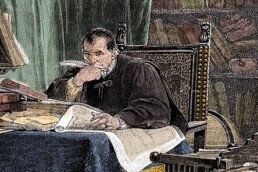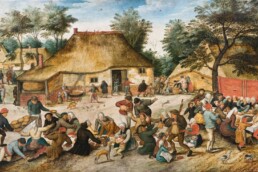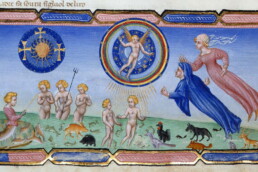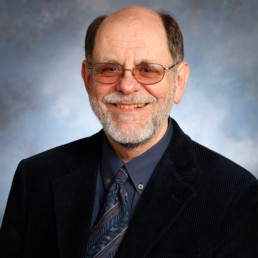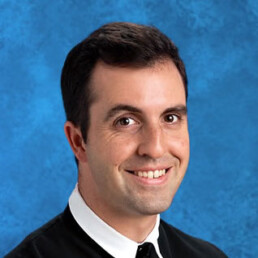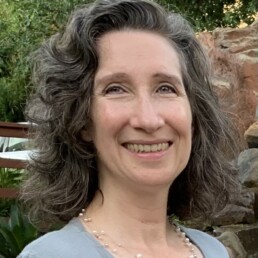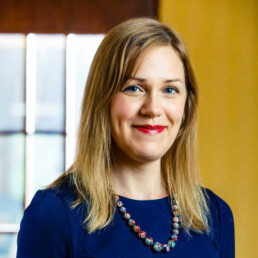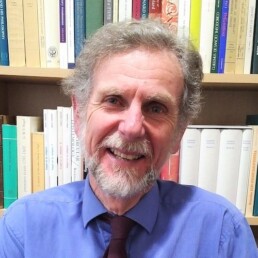Theology for transitional times
February 16, 2026
Augustine, Machiavelli, and Political Rule
Essays,Augustine Among the Moderns
Colleen Mitchell considers how Augustine and Machiavelli approach political rule
January 30, 2026
Machiavelli and the City of God
Essays,Augustine Among the Moderns
Brian Harding discusses the death of Augustine's city of God in Machiavellian thought
January 12, 2026
The Mystery of Light: Augustine on the Sacrament of Christmas
Essays,Augustine Among the Moderns
Alex Fogleman on Augustine and Christmas as sacrament
December 24, 2025
In Defense of Cozy Christmas
Essays,Augustine Among the Moderns
Christopher Neyhart on Christmas Aesthetics
November 24, 2025
“Fire, Born to Rise”: On Dante the Augustinian
Essays,Augustine Among the Moderns
Paul Camacho on the shared weight of love in Dante and Augustine
July 2, 2025
“Pope Leo: Son of Augustine, Father to the Church”
Veronica Ogle in Public Discourse:
"As an Augustinian scholar at an Augustinian university, I have been asked a lot recently how it feels to have an Augustinian Pope. Beyond being delighted that he has readily embraced the dictum that singing is praying twice, I am grateful that our new Holy Father seems eager to bring the insights of such a great theological mind to bear on his pontificate. Yet, what might it mean that Pope Leo thinks of himself as a son of Saint Augustine? Without presuming to know what the Holy Spirit had in mind in prompting his election, I would like to offer a few thoughts about how a pope steeped in the life and writings of Augustine might be a healing presence in our wounded world."
On the Way with Augustine
As part of our regular contributions to this blog, we invite authors from diverse disciplines and backgrounds to reflect on their journey with Augustine by responding to this question:
In what way has Augustine or someone he has provoked or inspired been a pivotal figure for you?
April 12, 2023
Between Belief and Understanding
Brian McCaffrey on becoming comfortable with ambiguity
December 21, 2022
Augustine, Love, and Hitting Home Runs
Michael Cameron on Augustine as spiritual preceptor
January 30, 2026
Canadian Society of Patristic Studies Call for Papers
The 51th Annual Meeting of the Canadian Society of Patristic Studies will take place from May 26-28, 2026, at St. Augustine's Seminary on the University of Toronto, Ontario. Registration information to follow in early 2026.
We invite papers on any theme relevant to the study of late antiquity, patristic studies, or the study of Christianity between the second and seventh centuries CE. Papers are presented in English or French. The time allotted for presentation is 20-25 minutes, with discussion to follow. The proposed title, an abstract of approximately 100 words, and an indication of audio-visual and accessibility requirements should be emailed to the dedicated conference email address (cspsacep2026@gmail.com) by 31 January, 2026. Please indicate in your email whether you plan to attend virtually or in person.
November 25, 2025
New City Press: Black Friday/Cyber Monday Sale
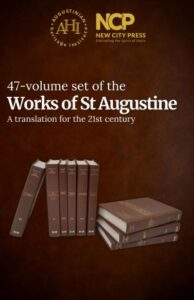 New City Press Black Friday/Cyber Monday Promotion Details
New City Press Black Friday/Cyber Monday Promotion DetailsAugust 12, 2025
“Augustine the African Book Event 9/12: Villanova Hosts Catherine Conybeare
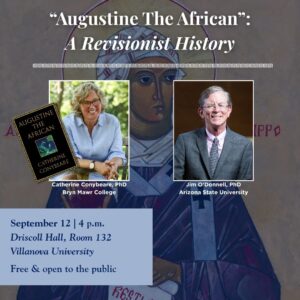 Augustine of Hippo (354-430) remains one of history’s most influential theologians. His writings, including the autobiographical Confessions, helped shape the foundations of Christianity and Western philosophy.
Augustine of Hippo (354-430) remains one of history’s most influential theologians. His writings, including the autobiographical Confessions, helped shape the foundations of Christianity and Western philosophy.
Yet while his ideas stand the test of time, key aspects of his life – including his North African birth and Berber heritage – have gone unexamined for centuries. In her new book Augustine the African, historian Catherine Conybeare, PhD, Bryn Mawr College, uses surviving letters and other evidence to retrace Augustine’s roots, painting a groundbreaking portrait of the wandering saint’s ethnic identity.
Dr. Conybeare and fellow historian and classicist James O’Donnell, PhD, Arizona State University, will discuss this latest work.
Presented by Villanova University’s Augustinian Institute and co-sponsored by the Lepage Center, this will be a live, in-person discussion at 4:00 p.m. on Friday, September 12th in Room 132 of Driscoll Hall at Villanova University.
Newsletter
Subscribe to the Augustine Blog newsletter
Receive a weekly summary of articles and reflections, sent directly to your inbox!
